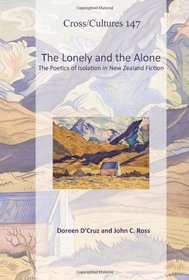Search -
The Lonely and the Alone: The Poetics of Isolation in New Zealand Fiction (Cross/Cultures)
The Lonely and the Alone The Poetics of Isolation in New Zealand Fiction - Cross/Cultures
Author:
Aloneness, loneliness, isolation, the isola¬ted consciousness, the many possible guises of outsider-status, alienation, and exclusion - these have especial potency in New Zealand life and literature. The pro¬minence of the motif or topos of the man or woman alone has been widely recog¬nized by literary historians and critics, but this work is th... more »
Author:
Aloneness, loneliness, isolation, the isola¬ted consciousness, the many possible guises of outsider-status, alienation, and exclusion - these have especial potency in New Zealand life and literature. The pro¬minence of the motif or topos of the man or woman alone has been widely recog¬nized by literary historians and critics, but this work is th... more »
ISBN-13: 9789042034747
ISBN-10: 9042034742
Publication Date: 2/14/2012
Pages: 428
Rating: ?
ISBN-10: 9042034742
Publication Date: 2/14/2012
Pages: 428
Rating: ?
0 stars, based on 0 rating
Genres:
- Literature & Fiction >> British & Irish
- Literature & Fiction >> History & Criticism >> European >> British & Irish
- Literature & Fiction >> History & Criticism >> Regional & Cultural >> Australian & Oceanian




